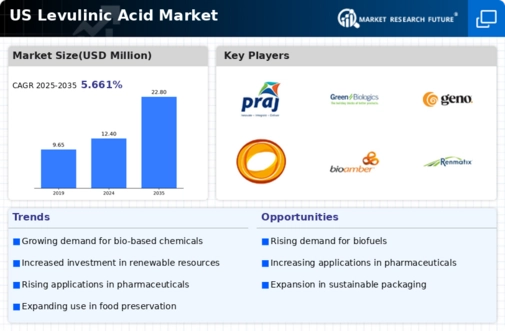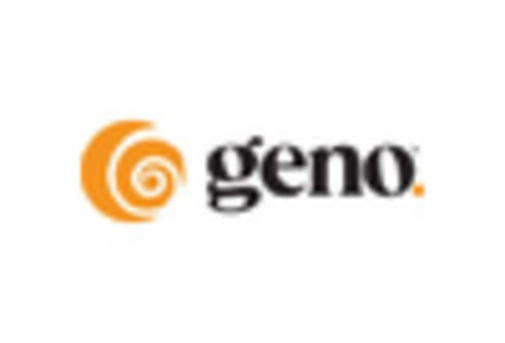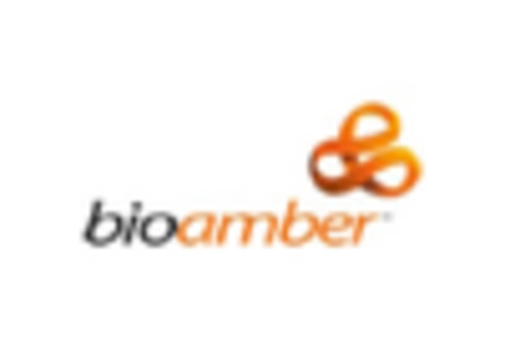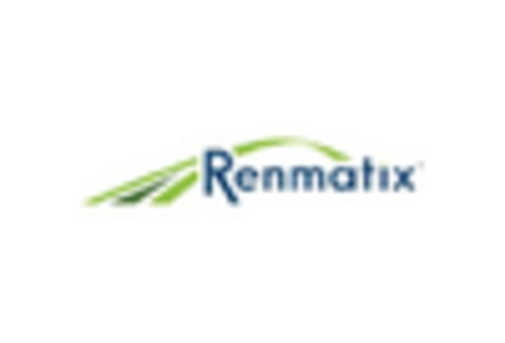The levulinic acid market exhibits a dynamic competitive landscape characterized by a blend of innovation, sustainability, and strategic partnerships. Key players such as BASF SE (Germany), Corbion (Netherlands), and Genomatica (US) are at the forefront, each adopting distinct strategies to enhance their market positioning. BASF SE (Germany) focuses on leveraging its extensive research capabilities to innovate in biobased chemicals, while Corbion (Netherlands) emphasizes sustainability through its commitment to renewable resources. Genomatica (US) appears to be concentrating on expanding its bioprocessing technologies, which could potentially reshape production methodologies in the sector. Collectively, these strategies not only enhance their competitive edge but also contribute to a more sustainable and innovative market environment.
In terms of business tactics, companies are increasingly localizing manufacturing to reduce supply chain vulnerabilities and enhance responsiveness to market demands. The competitive structure of the levulinic acid market is moderately fragmented, with several players vying for market share. This fragmentation allows for diverse approaches to production and innovation, as companies seek to differentiate themselves through unique value propositions and operational efficiencies.
In November 2025, Corbion (Netherlands) announced a strategic partnership with a leading agricultural firm to develop sustainable feedstock sources for levulinic acid production. This collaboration is significant as it not only aligns with global sustainability goals but also enhances Corbion's supply chain resilience, potentially leading to cost reductions and improved product availability. Such partnerships may serve as a model for other companies aiming to bolster their sustainability credentials while ensuring a stable supply of raw materials.
In October 2025, Genomatica (US) launched a new bioprocessing platform that promises to increase the efficiency of levulinic acid production. This innovation is crucial as it could lower production costs and reduce environmental impact, thereby positioning Genomatica as a leader in sustainable chemical manufacturing. The introduction of advanced technologies like this may catalyze a shift in production paradigms across the industry, encouraging competitors to adopt similar innovations.
In September 2025, BASF SE (Germany) expanded its research and development facilities in the US, focusing on biobased chemicals, including levulinic acid. This expansion underscores BASF's commitment to innovation and its strategic intent to capture a larger share of the growing market for sustainable chemicals. By enhancing its R&D capabilities, BASF is likely to accelerate the development of new products and processes, further solidifying its competitive position.
As of December 2025, the levulinic acid market is increasingly influenced by trends such as digitalization, sustainability, and the integration of artificial intelligence in production processes. Strategic alliances are becoming more prevalent, as companies recognize the value of collaboration in achieving sustainability goals and enhancing operational efficiencies. Looking ahead, competitive differentiation is expected to evolve, with a pronounced shift from price-based competition to a focus on innovation, technological advancements, and supply chain reliability. This transition may redefine the competitive landscape, compelling companies to invest in R&D and sustainable practices to maintain their market positions.


















Leave a Comment